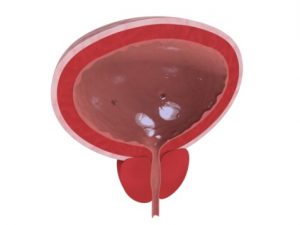
For many, bladder stones may be symptomless. If small enough, they can easily be passed when urinating. But in some cases, you may experience symptoms like pain, difficulty urinating, increased urination, and visual changes in your urine.
The good news is that bladder stones can be prevented through natural means and home remedies. Diet plays a large role in bladder stone development and prevention. Here are some tips and home remedies to help you ward off and treat bladder stones.
Diet for bladder stones
The primary cause of bladder stones is urine left in the bladder, but diet can play a role in the formation of bladder stones too. This is because a poor diet can change the chemistry of your urine, increasing the risk of bladder stones. This is why consuming a healthy diet is so important to reduce your risk.
For starters, your diet should be low in fat and contain a variety of nutrient-rich foods. This means consuming plenty of fruits and vegetables, whole grains, low-fat dairy, and lean sources of protein like poultry and fish.
Your diet should also be high in fiber, which can be obtained from whole grains and fruits and vegetables. Recommended daily fiber intake is two cups of fruit or two and a half cups of vegetables.
Lastly, you should consume plenty of water, as it can help flush out your bladder. Dehydration and insufficient water intake, on the other hand, can increase your risk of bladder stones as well. The goal is to aim for at least eight glasses of water a day, but this can vary. A good method to determine how much water you need is to drink one quart of water for every 50 pounds of body weight. For example, if you weigh 150 pounds, you will need three quarts or two liters.
Bladder stone prevention
To prevent bladder stones, consult with your doctor about any symptoms you may be experiencing, like those resulting from an enlarged prostate. Drink plenty of fluids and implement the diet tips listed above.
Treatment options for bladder stones
Bladder stones should be removed if they cannot be easily passed through urination. This is because they can lead to complications, such as blockages and further infection. A common procedure to break bladder stones apart is known as cystolitholapaxy, where a small tube with a camera at the end is inserted through the urethra into the bladder to observe the stone. Once located, your doctor uses ultrasound or mechanical devices to break apart the stone into smaller pieces, which can then be flushed out.
When bladder stones are too large to break, open surgery is required, which involves making an incision in the bladder to get the stones out.
Natural remedies for bladder stones
There are plenty of natural remedies to treat bladder stones that can be prepared right in your own home. Some of the simplest include:
Pineapple juice, rose water and sugar candy: Mix together 10g of pineapple juice, 10g of sugar candy (or misri), and 10g of rose water and let it sit overnight. Drink the following morning for immediate relief.
Watermelon seeds: Eating watermelon seeds throughout the day can help to break down the bladder stones and flush them out through urination.
Barley water: Mix barley water with cranberry juice for fast treatment of bladder stones.
Apple juice: Drinking pure apple juice can help break down bladder stones and prevent more for developing.
Hydration: Drink plenty of water, unsweetened fruit juices, and coconut water to help flush the bladder stones out of your system. Citrus juices like orange juice can also help prevent the formation of bladder stones.
Related: Bladder stones – causes, symptoms, and treatment